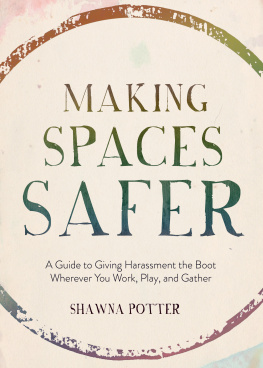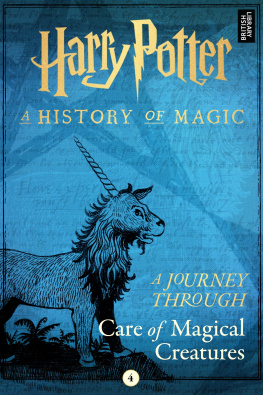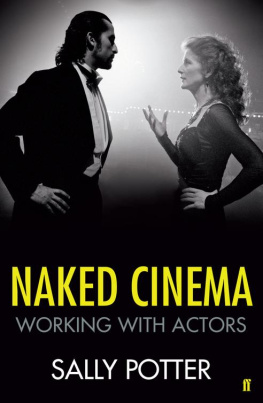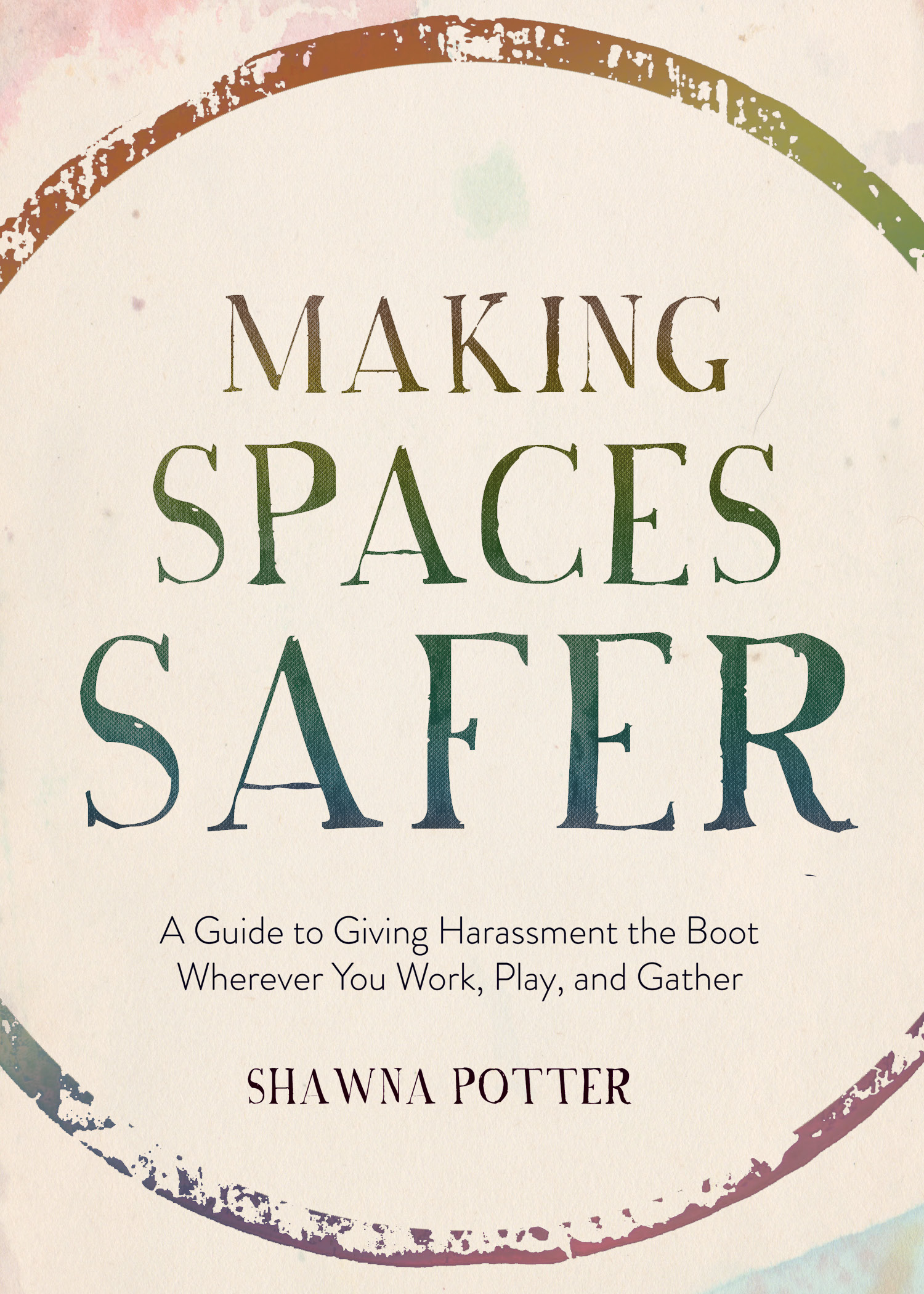Introduction
I was having a g ood night.
I had traveled to New York City to visit with an old bandmate. Having just moved to the East Coast, my southern self did not think four hours seemed like a long time to drive anywhere, especially for a place that not only had bodegas, but bodegas that stayed open past 9:00 p.m. My friend and I were walking to a subway stop, deep in conversation. It was late, but I felt safe. I could walk down the street at night here and not be scared. There were lights on everywhere, cars were speeding by, people were walking all around. It felt like the city was alive. Aware. I was with a tall guy anyway, so I could relax, right? In my at ease state, I felt a hand haphazardly grab and squeeze my butt. The two guys we just passed on the sidewalk were now laughing behind me, quickly walking away. I turned around, stood in place, and yelled at them. Hey assholes, dont fucking touch me! More laughs. They were halfway down the block when I said to the two people walking behind them, You better check your friend, he just fucking grabbed my ass. Tell him thats not cool! I turned around and started moving, expecting my friend to keep up. I was fuming, complaining loudly about how the entire scene made me feel. After a few moments of silence, this close friend said, You know, I dont think those people were with those guys. I dont think they knew what you were talki ng about.
Not That sucks, Im sorry or What a couple of assholes or Drunk fucks; are you alright? Nothing like that. Frankly, the woman stranger I told to check her friend seemed much more concerned about what had just happened than my actual friend. Looking back it feels like his only concern was whether or not I had responded appropriately to something wholly inappropriate. While I didnt let being groped that night ruin the rest of my trip, I still think of that moment sometimes. I think it sticks with me because I felt violated, belittled, and alone in the span of five minutes. I wonder if Id think about it as much if my friend had backed me up. Of course, its not his fault those guys touched me, but what if he had yelled at them with me, told me I was totally right to call them assholes, or even just given me a hug? Would men who think its funny to touch a stranger without their permission change their minds if they knew that stranger would have the support of all the people ar ound them?
I have a few car stories, too. The one I often tell when I lead safer space workshops is about the time a guy got out of his car in the middle of an intersection to call me a cunt and an ugly bitch anyway (among other things) because I had the nerve to absentmindedly flip a middle finger in the air when he honked his car horn at me. That one shook me so hard that I froze until he drove off, and, when I started to walk again, I asked the first friendly person I saw for a hug. The wash of understanding and empathy on the persons face allowed me to let out the tears I had been holding in. I got to share being upset with someone after feeling alone with an angry, reckless man. That is not meant to be poetic. For the full minute he was stopped and yelling at me, that block was deserted. I had no idea if he would run over to me and try to hurt me. I mean, if he was willing to stop and get out of his car in the middle of the street, then what else might he be capable of when a woman makes him angry?
I suppose its comforting that I get a lot of support from the people taking my workshops, a lot of Thats nuts! and I cant believe that guy did that! or All that because of a middle finger? Its obvious to them that his behavior in that moment was wrong. Its also obvious, to me, that their disbelief at this bad behavior, which innocently comes from not experiencing it themselves, could set things up for making someone feel worse about the harassment they just faced. Any statement like He really did that? Just because you did X?, however well meaning, subtly shifts the focus from his behavior, where it should be , to mine.
Also, disbelief can be read as mistrust. Its hard to hear I cant imagine why someone would do that or Ive never seen anything like that, because, well, I have. And so have lots of folks, for various reasons. I might suddenly be wondering if the person Im telling my story to believes me and will support me, when I should be concentrating on calming down. Ive had to lose a giant pickup truck that was following me on my bicycle, making me late for work. Ive had to hear someone shout from a car full of men Can I come over for some pussy later? and then speed off, as I entered my dads house while on vacation, not knowing if they lived around there and would, in fact, come b ack later.
For people who experience harassment oftensexist, racist, homophobic, transphobic, Islamophobic, or ableistthat feeling of What else is this person capable of? is common and stressful. It means youre always on guard, waiting for harassment to happen, and knowing, when it does, that it might turn aggressive. All those minor instances of harassment can feel pretty major until they are over, because you cant predict the future behavior of someone who is already cool with disrespecting a total stranger.
And each instance matters, because they add up. Those sense memories of feeling isolated and scared compound, making it hard to believe youll ever go anywhere without being harassed. Youve learned to expect it. So much so that even when it doesnt happen, your body has already prepared for itnarrowing your focus, tensing muscles, quickening your breath, and sharpening your mind in case you need to make an emergency decision to maintain your safety. Dealing with harassment is a stressor. According to Harvard Medical School, studies show that repeated activation of the stress response takes a toll on the body, contributing to high blood pressure as well as mental health concerns like anxiety, depression, and addiction. So while a wolf whistle or a quick shout of Nice ass! is not as bad as being groped by a stranger in the middle of the night or being followed by an intimidatingly large vehicle, its still bad because I dont know if it will get worse. At its least physically draining (but most predictable), its a mere reminder of all the other times I have been harassed and felt less thanlike my body doesnt belong to me once I enter a public space; like Im just a body, not a human being with my own thoughts, dreams, passions, and struggles.
The best way to lessen the feeling of isolation one gets from frequent, commonplace harassment, is to make the response to harassment a group effort. A 2012 study performed by the Worker Institute at Cornell University, rep orts that:
- When bystanders fail to act, their presence tended to compound targets negative emotional responses.
- Bystander interventions that had a positive influence on targets could be as simple as a knowing look or a supportive statement.
- When a bystander took action by confronting the harasser, harassment was more likely to stop.
Those last two points are clear, but I want to emphasize the first. When you see harassment happening but do nothing to intervene, it makes the victim feel worse than if dealing with it alone.
Victim versu s Survivor
Not everyone who experiences violence considers themselves a victim. The word victim can feel loaded. For some, it seems too serious a designation to describe what they went through, while others dont want to risk being pitied or be seen as helpless. Self-identifying as a survivor is a valid way to assert youve come out the other side of a traumatic event, but please know: there is no shame in being a victim. It just means something happened to you that is not your fault. I will mostly be using the word victim in this book to describe someone who has experienced harassment or violence based on belonging to a marginalized or oppressed group, but you might also see the terms survivor or, to borrow from self-defense language, target, depending on th e context.








![J K Rowling - Harry Potter [Complete Collection]](/uploads/posts/book/117015/thumbs/j-k-rowling-harry-potter-complete-collection.jpg)





